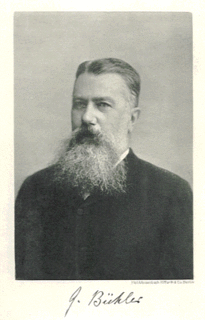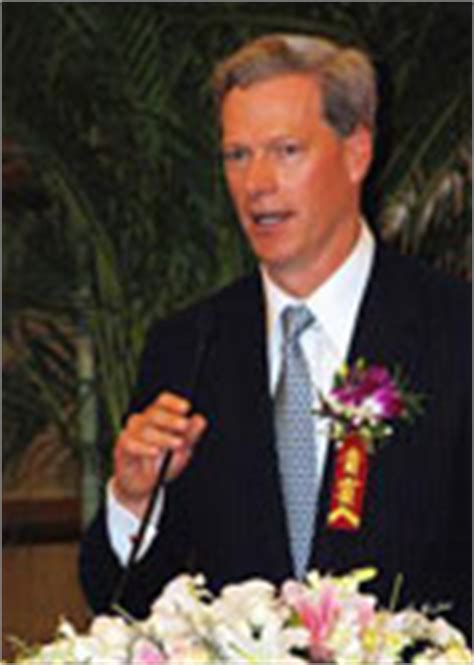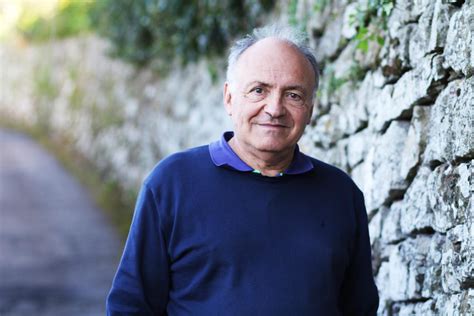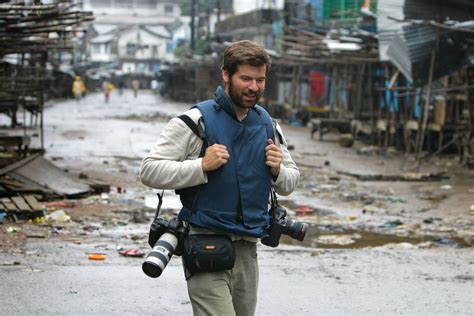A Quote by Karen Armstrong
Theologians in all the great faiths have devised all kinds of myths to show that this type of kenosis, of self-emptying, is found in the life of God itself. They do not do this because it sounds edifying, but because this is the way that human nature seems to work. We are most creative and sense other possibilities that transcend our ordinary experience when we leave ourselves behind.
Related Quotes
The process of writing can be a powerful tool for self-discovery. Writing demands self-knowledge; it forces the writer to become a student of human nature, to pay attention to his experience, to understand the nature of experience itself. By delving into raw experience and distilling it into a work of art, the writer is engaging in the heart and soul of philosophy - making sense out of life.
The biggest adversary in our life is ourselves. We are what we are, in a sense, because of the dominating thoughts we allow to gather in our head. All concepts of self-improvement, all actions and paths we take, relate solely to our abstract image of ourselves. Life is limited only by how we really see ourselves and feel about our being. A great deal of pure self-knowledge and inner understanding allows us to lay an all-important foundation for the structure of our life from which we can perceive and take the right avenues.
The refusal to be creative is an act of self-will and is counter to our true nature. When we are open to our creativity, we are opening to God: good, orderly direction. As we pursue our creative fulfillment, all elements of our life move toward harmony. As we strengthen our creativity, we strengthen our connection to the Creator within. Artists love other artists. Our relationship to God is co-creative, artist to artist. It is God's will for us to live in creative abundance.
Humanity may destroy the possibilities for life on earth unless the freedom and power that we have acquired are channeled in new creative directions by a spiritual awareness and moral commitment that transcend nationalism, racism, sexism, religious sectarianism, anthropocentrism, and the dualism between human culture and nature. This is the great issue for the 1990s and the twenty-first century.
'Ragtime' was the most magical show that I've done. I had an incredible experience with that, with the show itself, with the cast, with the audience. The response to that show - my God, it really blew me away, the reactions to that show, the way it changed their lives and altered their thinking, their own self-discovery.
In trusting, we let ourselves go. We know that all kinds of unexpected events may come our way. Our tension eases, our mind and our hearts open spontaneously to be possibilities. It is an ever new state of mind, in the present moment, because we have detached from all we know. But it is also a feeling as old as can be, because, before all betrayals and all disappointments, there was a time in which trusting another was the very substance of our life.
Whether or not you believe in God, you must believe this: when we as a species abandon our trust in a power greater than us, we abandon our sense of accountability. Faiths… all faiths… are admonitions that there is something we cannot understand, something to which we are accountable. With faith we are accountable to each other, to ourselves, and to a higher truth. Religion is flawed, but only because man is flawed. The church consists of a brotherhood of imperfect, simple souls wanting only to be a voice of compassion in a world spinning out of control.
There seems no intrinsic reason why everyone shouldn't be (self-actualising). Apparently every baby has possibilities for self-actualisation, but most get it knocked out of them ...I think of the self-actualising man not as an ordinary man with something added, but rather as the ordinary man with nothing taken away.
Why do we fail? Is it because we are unlucky? Is it because we have not worked very hard? I s it because we have not invoked God's Compassion and Blessings? Is it because God has accepted this failure as an experience He wanted to have in our life? Is it because God has granted this failure to us? Is it because God has willed that we should lose? No! not it is for a different reason that we experience failure. It is for the strengthening of our consciousness that, at times, God grants us defeat.
Leaving love behind is never easy, for it also asks that we leave behind the part of ourselves that did the loving. And yet for all but the very fortunate and the very foolish, this difficult transition is an inevitable part of the human experience, of the ceaseless learning journey that is life - because, after all, anything worth pursuing is worth failing at, and fail we do as we pursue.
It helps to regard soul as an active intelligence, forming and plotting each person's fate. Translators use "plot" to render the ancient Greek word mythos in English. The plots that entangle our souls and draw forth our characters are the great myths. That is why we need a sense of myth and knowledge of different myths to gain insight into our epic struggles, our misalliances, and our tragedies. Myths show the imaginative structures inside our messes, and our human characters can locate themselves against the background of the characters of myth.





































